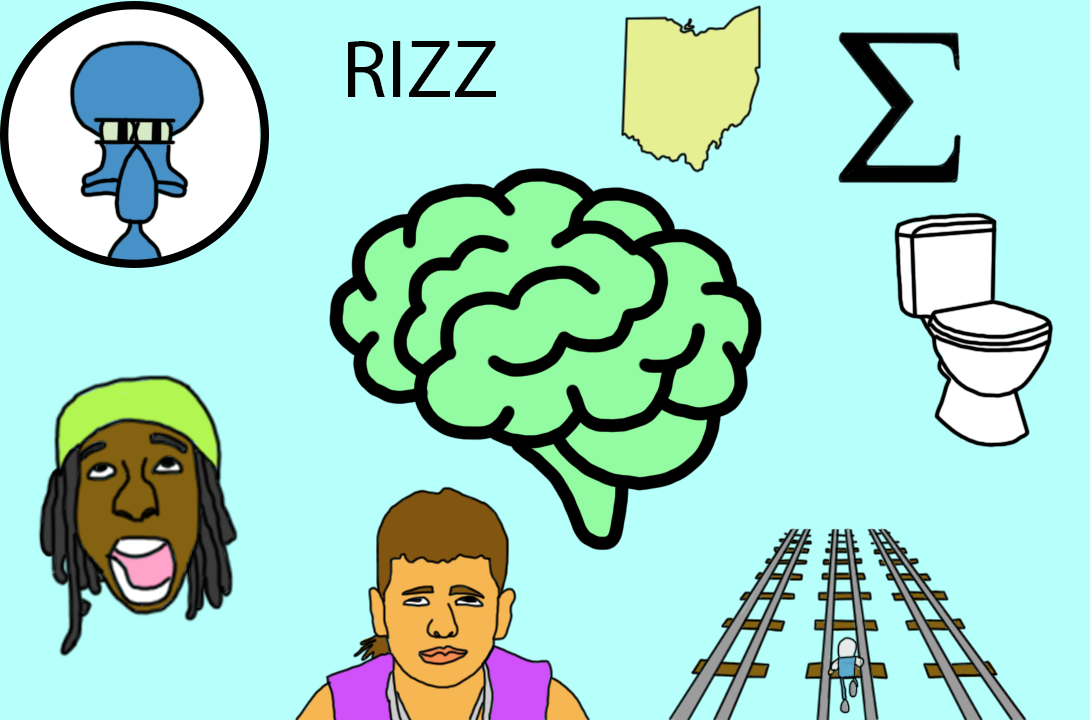Since its invention, the internet has had an overwhelming influence on youth culture and trends. While initially humbling, the online world has evolved past emails and fax machines into a new era of online entertainment and engagement, accessible with the press of a button. This technology has been a double-edged sword, bringing forward fads that affect younger generations in their conversations and interactions. However, are the newest forms of “mind-numbing” internet sensations worse than those current high schoolers grew up with, or does hindsight bias alter perceptions of how much worse older trends truly were?
Current late adolescents grew up alongside the current-day internet. Memes went from bold fonts and funny images to what now can only accurately be described as “brain rot.” The primary reason for such changes has been the rapid advancement in modern technology. In the past, internet creators used simple applications, such as Microsoft Paint, to achieve their internet fame. As time has passed, software such as Blender and Photoshop have changed the game in terms of content quality. Additionally, hardware has exponentially increased in its capabilities to record and share content, reaching resolutions as high as 8K. The last difference technologically between the past and present is how content is shared. While websites such as Reddit and YouTube used to be the epicenters of internet conversation, content is now spread mostly between apps such as TikTok, Instagram, Snapchat and others.
Looking simply at the overall changes of the internet, one would likely assume that the web is a better place now than ever. However, the biggest cause of concern for those looking back is how the type of content shared has been altered beyond recognition. Internet memes began as simple images, audio and low-quality videos that, while cringe-worthy now, had meaning behind them. New “brain rot” has thrown out these concepts and embraced the nonsensical. No longer is content bound by the idea of being perceived as funny for a general audience. With the internet as large as it is now, memes, regardless of their content, are capable of reaching large audiences.
“I think nowadays memes seem to be combined whereas memes used to be separated. Memes sort of come together now to create new content,” senior Hayden Bender said.
Topics trending lately do not even make sense when mentioned. These include “Skibidi Toilet,” “TikTok Rizz Party,” “Looksmaxxing” and even “What the Sigma?” Modern-day humor has no rhyme or reason for its jokes. A video of a 3D fish spinning in a circle can be considered funny and receive hundreds of thousands of likes. These new memes have also adapted and contributed to the lowered attentions spans of younger generations. It has become common to see content with videos of popular shows or gameplay of mobile phone games such as Subway Surfers playing in the background. Content is made to be quickly digested and scrolled past, killing the ability for users to retain focus for a long period of time. The introduction of artificial intelligence has also added to the chaos. Now, the audio of popular individuals can be spliced into anything that a content creator desires to make either fun additions or new abominations.
“I think artificial intelligence makes [memes] very comical. The images and voices are silly,” junior Jesse Reinhardt said.
While newer technology has improved upon the quality of the online content of the modern age, the culture that has overtaken the internet has been detrimental to what people watch for entertainment every day. Attention spans are at an all-time low, stemming from the fast-paced dopamine rushes that the “brain rot” supplies. While more innovative, the internet has taken a dark turn in the past years. It may be time to step away from the nonsense of the online world and give it time to heal into a healthier place.



